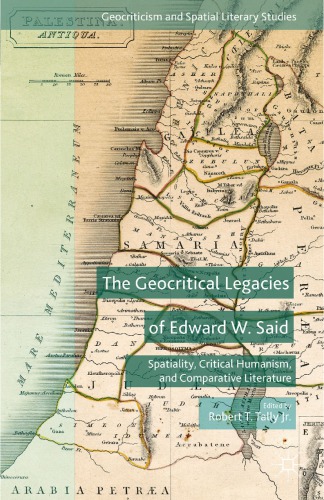

Most ebook files are in PDF format, so you can easily read them using various software such as Foxit Reader or directly on the Google Chrome browser.
Some ebook files are released by publishers in other formats such as .awz, .mobi, .epub, .fb2, etc. You may need to install specific software to read these formats on mobile/PC, such as Calibre.
Please read the tutorial at this link: https://ebookbell.com/faq
We offer FREE conversion to the popular formats you request; however, this may take some time. Therefore, right after payment, please email us, and we will try to provide the service as quickly as possible.
For some exceptional file formats or broken links (if any), please refrain from opening any disputes. Instead, email us first, and we will try to assist within a maximum of 6 hours.
EbookBell Team

5.0
30 reviewsEdward W. Said remains one of the most important literary and cultural critics in the world. A towering figure in postcolonial studies, Said may be equally well regarded for his scholarship in comparative literature, critical theory, and intellectual history. Less well known, perhaps, is Said's immense influence on geocriticism or spatial literary studies. The Geocritical Legacies of Edward W. Said brings together a variety of essays which, each in its own way, highlight the significance of Said's work for contemporary spatial criticism. With contributions from both established literary critics and emerging scholars, this collection provides a representative sample of work being done in the wake of Said's multifaceted and enormous critical project.
"The focus of Tally's The Geocritical Legacies of Edward W. Said is how Said's work can function as a prism via which Geo-political and cultural 'spaces' may be critically explored. It gives this collection its particular originality amid the many books about 'the spatial turn' and also in Said studies generally these days since it is the tenth anniversary of his death. As one generation of critics retires, and a new one is ushered in during a time when the future of the humanities is uncertain, this collection is a welcome reminder of what the best criticism can do in and for the world."--Daniel T. O'Hara, Professor of English and Inaugural Mellon Professor of Humanities, Temple University, USA "Edward W. Said pioneered the postcolonial momentum that would replace a global concept of historical time that privileged the West by a geographical perspective, which has enabled the non-Western victims of this imperial Western concept of historical time to become visible on a global scale. The essays in Robert Tally's edited volume The Geocritical Legacies of Edward W. Said constitute welcomed contributions to this urgent Saidian initiative."--William V. Spanos, Distinguished Professor of English, Binghamton University, USA "The Geocritical Legacies of Edward W. Said should become a resource for those thinking about a host of interlocking questions Said explored over his career: cosmopolitanism, secular criticism, exile and modernism, critical and political genealogies, democratic humanism, imperialism, nationalism, and narration, as well as the various configurations of Orientalism. Said serves as point of departure: these essays extend his work in thoughtful and provocative ways." - Susan Z. Andrade, Associate Professor of English, University of Pittsburgh, USA.